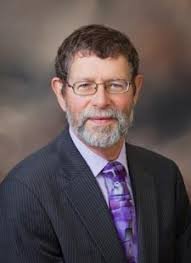

Frontiers Forum Deep Dive series
Immune-mediated diseases and climate change
20 June 2024
Renowned researchers explored links between climate change and immune dysregulation, and solutions for reducing climate-related impacts on human health.

Speakers
-
Dr Kari Nadeau
Harvard University, USA
Read bio -

Prof Ioana Agache
Transilvania University of Brasov, Romania
Read bio -

Prof Stephen Holgate
University of Southampton Faculty of Medicine, UK
Read bio -

Prof Edward Maibach
George Mason University, USA
Read bio -

Dr John Balmes
University of California San Francisco and Berkeley, USA
Read bio -
Dr John Balbus
U.S. Department of Health and Human Services, USA
Read bio


Actions for reducing climate impacts on human health
The presentations and discussion in this Frontiers Forum Deep Dive session built on an article published in Frontiers in Science, describing how climate change is driving increases in asthma, allergies, cancers, and other immune-mediated diseases.
The article authors and other experts outlined these links—and discussed the urgent need for equitable, multilevel solutions for minimizing environmental health hazards associated with climate change.
Session program
Introduction and setting the scene
Dr Kari Nadeau
Adaption and mitigation strategies to reduce climate impacts on immune health
Prof Ioana Agache
Panel discussion and Q&A
Charting a path forward
Speaker and contributor bios
-
Kari Nadeau
Chair of the Department of Environmental Health
Harvard T.H. Chan School of Public Health, USADr Kari Nadeau’s pioneering work in allergy and immunology has significantly advanced our understanding of the environmental factors like air pollution, wildfires, and climate change affect the risk of developing allergies, asthma, and other immune disorders, especially in children. Her groundbreaking work in oral immunotherapy (OIT) has demonstrated that controlled exposure to allergens can induce desensitization in allergic individuals providing a potential pathway to reduce or eliminate severe allergic reactions.
Kari is working with the WHO to develop policies for mitigating and adapting to environmental changes, especially wildland fires to create resiliency and co-benefits in communities. She is a member of the National Academy of Medicine and the U.S. EPA Children's Health Protection Committee.
-
Ioana Agache
Professor of Allergy and Clinical Immunology
Transilvania University of Brasov, RomaniaProf Ioana Agache’s is a renowned expert in the field of asthma and allergy and clinical immunology. Her research explores asthma phenotypes and endotypes, biomarkers, immune modulation, AI/machine learning, and integrated management of allergic diseases, with a special focus on exposomics and One Health.
She is Past President of the European Academy of Allergy and Clinical Immunology (EAACI) and led the development of their guidelines on the use of biologics in asthma and allergic diseases, on environmental science for allergy and asthma, and on allergic asthma. Prof. Agache's expertise is widely recognized, as evidenced by her role as the Deputy Editor of the European Journal of Allergy and Clinical Immunology.
-
Stephen Holgate
Professor of Immunopharmacology
University of Southampton Faculty of Medicine, UKProf Sir Stephen Holgate’s pioneering research has profoundly impacted our understanding and treatment of allergic and respiratory diseases, including asthma, COPD and COVID-19. His research has informed guidelines on asthma management — including the role of mast cells and their mediators in asthma and allied disorders, the regulation and pharmacology of mast cells, and placing inflammation at the core of asthma pathophysiology. His work has informed international asthma management guidelines and validated therapeutic targets, improving patient care worldwide.
His current research focuses on stratified medicine, the role of the epithelium in orchestrating asthma and the evolution of asthma across the life course. In 2020, he received a Knighthood for services to medical research.
-
Edward Maibach
University Professor and Director of Mason’s Center for Climate Change Communication
George Mason University, USAProf Edward Maibach’s research centers on understanding and promoting public engagement in climate change. Previously, Ed served as Associate Director of the National Cancer Institute and as Worldwide Director of Social Marketing at Porter Novelli International.
In 2021, news agency Thompson Reuters identified him as one of the world’s 10 most influential scientists working on climate change. He is a Member of the National Academy of Medicine and the Virginia Academy of Science, Engineering, and Medicine. In 2020, he was awarded the Beck Family Presidential Medal of Excellence in Research and Scholarship.
-
John Balmes
Director, Northern California Center for Occupational and Environmental Health
University of California San Francisco and Berkeley, USADr John Balmes’s research is dedicated to the respiratory, cardiovascular and metabolic health effects of various air pollutants and occupational agents.
John collaborates on several epidemiological projects that are run out of the UC Berkeley School of Public Health, including the Children’s Health and Air Pollution Study (CHAPS). He also collaborates on studies of the effects of biomass smoke exposure on the respiratory health of children as well as respiratory and cardiovascular health of adults in rural Guatemala, Malawi, Rwanda, and Nepal. Currently, he is a member of the Nitrogen Oxides and Sulfur Oxides Review Panel of CASAC.
-
John Balbus
Director, Office of Climate Change and Health Equity
U.S. Department of Health and Human Services, USAPhysician and public health professional Dr John Balbus specializes in the health implications of climate change and building healthy, sustainable, resilient communities and environment. Since joining the federal government in 2009, he has served as HHS Principal to the U.S. Global Change Research Program and co-chair of the working group on Climate Change and Human Health for the U.S. Global Change Research Program.
John has also served as Senior Advisor for Public Health to the Director of the National Institute of Environmental Health Sciences. He was elected to the National Academy of Medicine in 2021..


